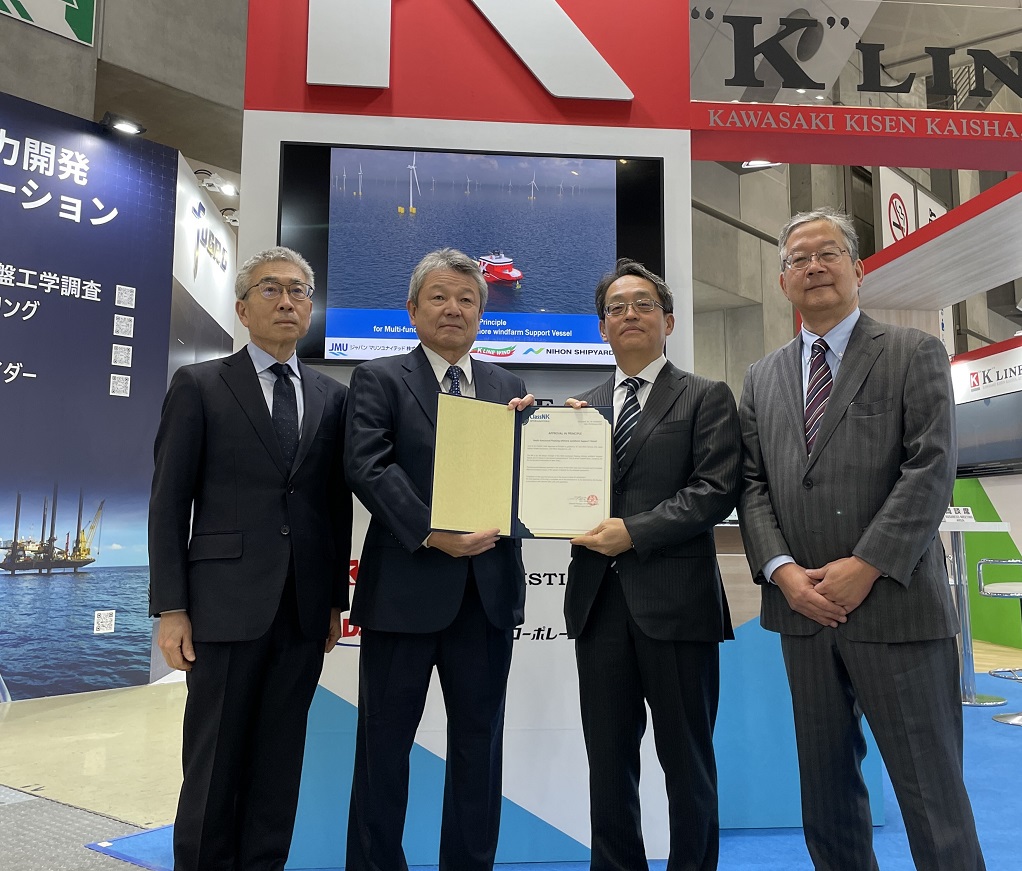ClassNK has awarded an approval in principle (AiP) for the design of a multi-functional floating offshore windfarm support vessel (MFSV) developed by “K” Line Wind Service, Ltd., a joint venture of Kawasaki Kisen Kaisha, Ltd. and Kawasaki Kinkai Kisen Kaisha, Ltd, together with Japan Marine United Corporation and Nihon Shipyard Co., Ltd.
The installation of floating offshore wind turbines requires mooring works by vessels, with the whole mooring system composed of an anchor, a mooring chain, and a fiber rope. The MFSV, developed this time, is designed to perform whole mooring works efficiently for floating offshore wind turbine installation, including “transportation of mooring system”, “deploying mooring system on the seabed”, and “anchor tensioning”. According to the companies, the vessel also features a multi-functional concept, providing various vessel solutions in each phase of offshore wind projects such as “Survey”, “Transportation”, “Construction”, and “Operation & Maintenance”.
ClassNK carried out the design review of the MFSV based on its Part O of Rules for the Survey and Construction of Steel Ships for work-ships and SPS Code, as well as IP Code, which will enter into force from July 2024. Upon confirming it complies with the prescribed requirements, ClassNK issued the AiP.
ClassNK will continue to contribute to the further expansion of renewable energy through its activities as a certification body.
Source: ClassNK.
Tags: AiP, ClassNK, Offshore, Support Vessel



Recent Posts
Greenlyte and MB Energy sign strategic e-methanol offtake agreement
CSDC and TECHNOLOG forge alliance to drive green, smart shipbuilding
DPA Kandla invites bids for India’s first port-based bio-methanol plant
Green & Digital Maritime Corridors Dialogue’ at JNPA sets stage for India Maritime Week 2025
Thermax partners with HydrogenPro for alkaline electrolyser systems in India
PIL Conducts First Simultaneous Cargo and LNG Bunkering in Singapore
NYK Takes Delivery of LNG-Fuelled Capesize Bulker SG Dawn
Swire Shipping joins Achilles Maritime Network to strengthen supply chain sustainability and compliance